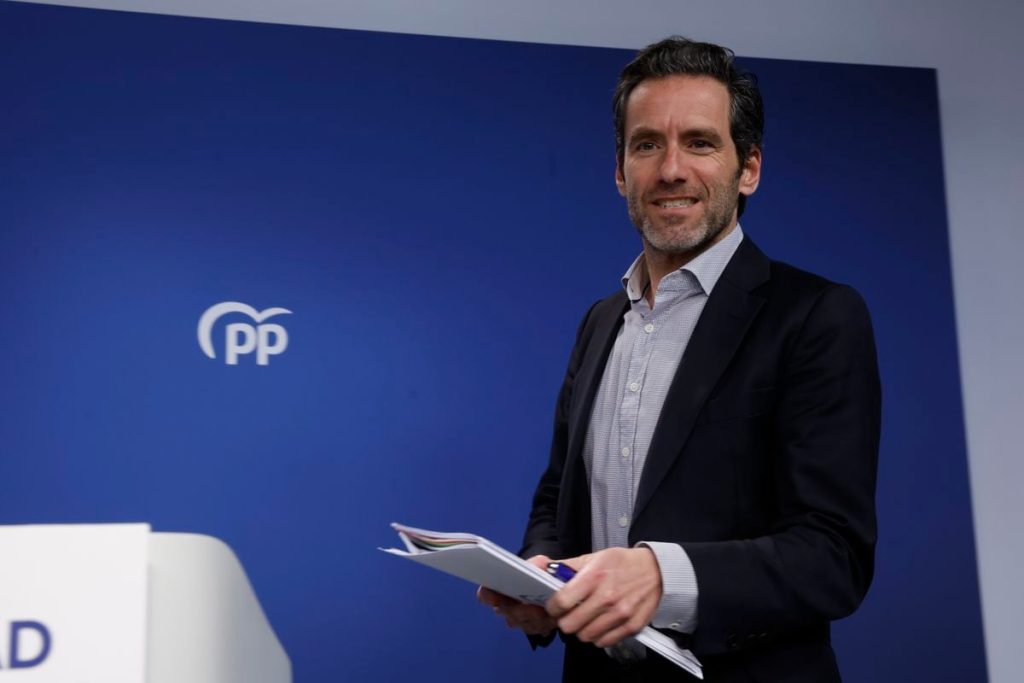The People’s Party has started the pre-campaign for the upcoming Catalan elections on May 12th with their sights set on the socialists, but without a candidate of their own. They are taking Marta Rovira’s words seriously, the number two of ERC, who stated that their party is “speaking” with the PSOE about a future referendum. The government denies having such conversations and will approve a constitutional challenge in the Council of Ministers to prevent the initiative from the Catalan Parliament calling for independence, as reported by El Mundo. The Moncloa has instructed to downplay Carles Puigdemont’s speeches after he proposed a consultation to the government and called for ERC and the CUP to form a joint list to achieve independence. The PP spokesperson, Borja Sémper, criticized the government’s strategy in Catalonia, accusing them of reactivating the independence process that had been deactivated by the rule of law and Catalan society.
Sémper tried to pin the blame on Sánchez for the alleged return to the situation in Catalonia in September and October 2017, when the illegal referendum was held. He praised the independence forces for being straightforward about their roadmap, contrasting them with Sánchez and the government’s supposed lies and entrapment. The PP leadership considers the constitutional challenge against the independence initiative in Catalonia as a mere excuse, as it will be brought forward by the Council of Ministers against a Popular Legislative Initiative supported by Junts, Esquerra Republicana, and the CUP. Responding to Sánchez’s accusations of polarizing attacks, Sémper criticized the government’s actions, accusing them of causing political unrest in Spain. In addition, he raised issues regarding a corruption scandal involving the president’s wife, Begoña Gómez, and pointed out Sumar’s role in investigations related to mask procurement.
The PP has appointed Luis Santamaría as the spokesperson in the Senate’s investigation committee for the Koldo case, and Elías Bendodo will fulfill the same role in the Congress for the commission initiated by the Socialists covering pandemic-related cases. Sémper also mentioned the planned meeting between the Justice Commissioner, Didier Reynders, PP vicesecretary Esteban González Pons, and Minister Félix Bolaños to discuss the renewal of the General Council of the Judiciary (CGPJ), which has been postponed. The PP continues to advocate for reforming the law on selecting CGPJ members, as the body has remained in office for over five years with an expired mandate. Despite the current political climate, the PP remains actively engaged in parliamentary inquiries and debates surrounding key issues in Spanish politics.
As tensions continue to rise in Catalonia and at the national level, the PP remains vocal in their opposition to Sánchez’s government, accusing them of creating division and instability. The party’s focus on corruption allegations and the independence movement in Catalonia reflects their determination to hold the government accountable for their actions. By leveraging parliamentary investigations and public statements, the PP aims to shape the political narrative and position themselves as a credible alternative to the current administration. With the Catalan elections looming, the PP’s strategies and messaging will play a crucial role in shaping public opinion and influencing the outcome of the upcoming electoral contest.


